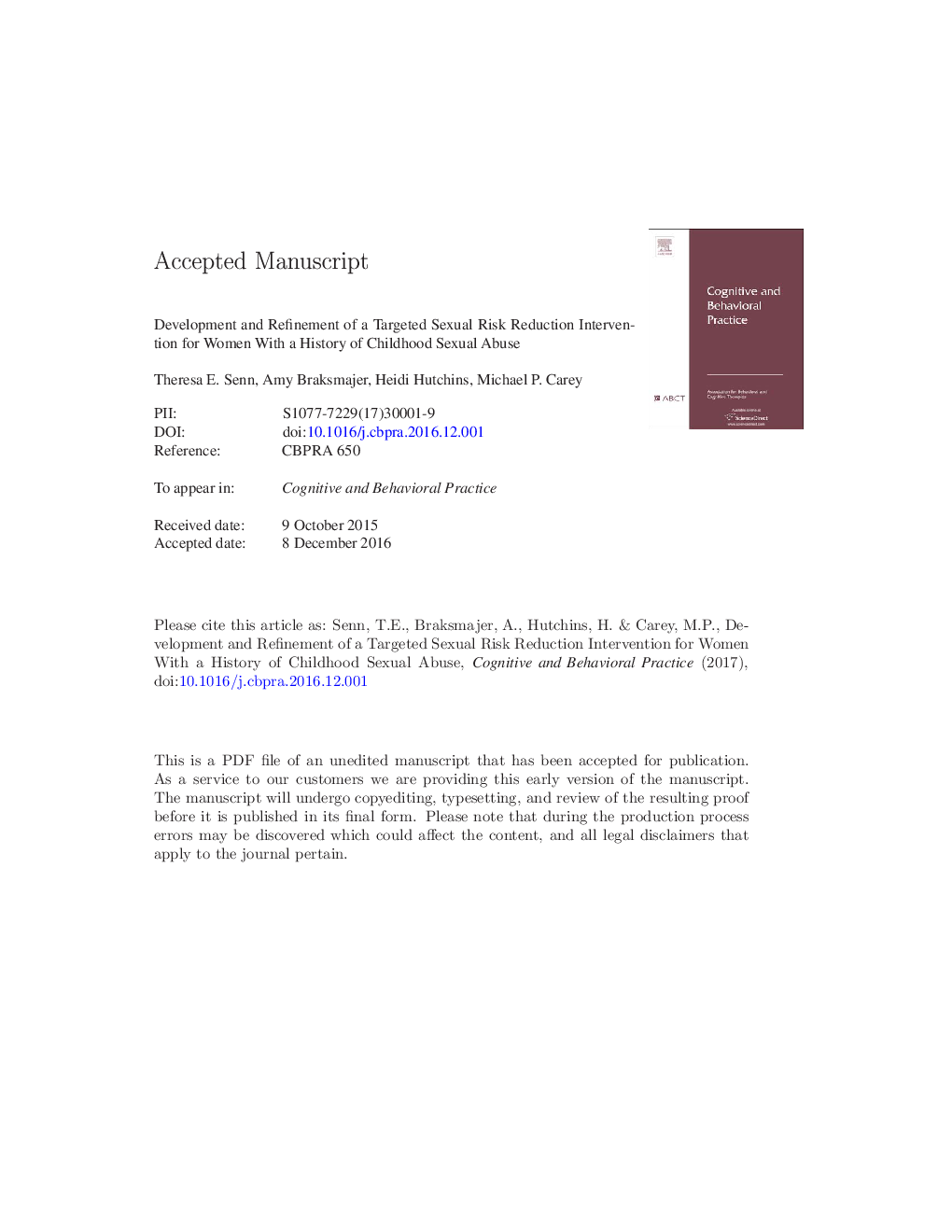ترجمه فارسی عنوان مقاله
توسعه و اصالح مداخله ای برای کاهش خطر ابتلا به افسردگی هدفمند برای زنان مبتلا به سوء استفاده جنسی از دوران کودکی
عنوان انگلیسی
Development and Refinement of a Targeted Sexual Risk Reduction Intervention for Women With a History of Childhood Sexual Abuse
| کد مقاله | سال انتشار | تعداد صفحات مقاله انگلیسی |
|---|---|---|
| 129908 | 2017 | 39 صفحه PDF |
منبع

Publisher : Elsevier - Science Direct (الزویر - ساینس دایرکت)
Journal : Cognitive and Behavioral Practice, Volume 24, Issue 4, November 2017, Pages 496-507
ترجمه کلمات کلیدی
سوء استفاده جنسی از کودک رفتار ریسک جنسی، عفونت های منتقله از راه جنسی، اچ آی وی، دینامیک تراوژنیک،
کلمات کلیدی انگلیسی
child sexual abuse; sexual risk behavior; sexually transmitted infections; HIV; traumagenic dynamics;

